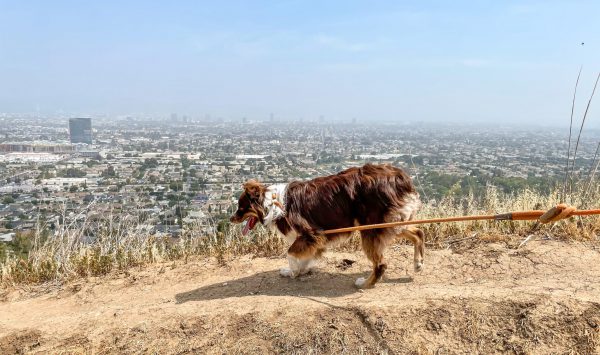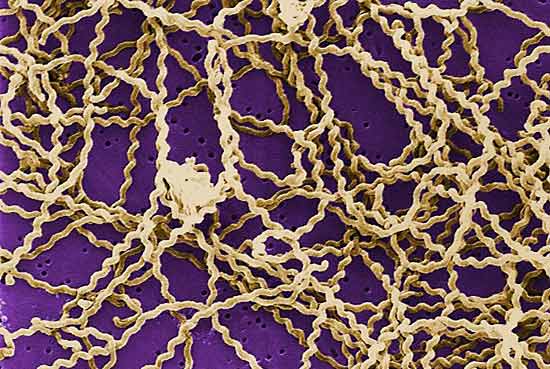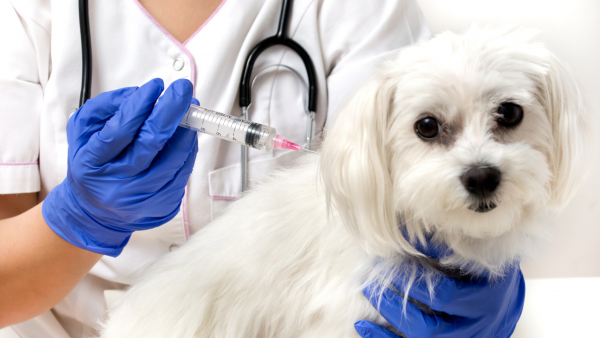Up until a month ago, most pet parents in the Los Angeles area had never heard of Leptosporosis (Lepto), a rare zoonotic disease associated with wildlife. Now, as LA county is facing an outbreak of Lepto, we are all learning about the bacterial disease and wondering how our dogs were left exposed to this potentially life threatening illness.

Background
More common diseases like rabies and distemper, are protected against through core vaccine requirements by the AAHA (American Animal Hospital Association). Lepto, Bordetella, Canine Influenza and Canine Coronavirus vaccines are only suggested based on lifestyle choices.
Since Lepto thrives in moist soil and water, it is considered a low risk disease in dry, urban areas like Los Angeles. Coupled with the fact that the older Lepto vaccine had adverse side effects, many vets felt the risks of the Lepto vaccine didn’t outweigh the benefits.
However, studies dating back to 2010 show a rise in Lepto cases and an increase of wildlife in urban areas. The concentration of wildlife in suburban areas is 8 to 10 times higher per acre than rural areas due to lack of predators and abundance of food sources. This, coupled with an unvaccinated dog population, has made dogs vulnerable to the deadly disease.

Lepto Outbreaks
Based on the information above, it is no surprise that San Diego was battling a Lepto outbreak this past winter. Since October 2020, there’s been at least 34 reported* cases of Lepto in San Diego County. The community was peppered with headlines like, “Vets Warn of Sudden Rise of Pet Illness Spreading in San Diego” and articles like “Lepto Cases are on the Rise.”
What is surprising, however, is that these headlines and reported cases didn’t prompt a response from the Los Angeles veterinarian community. Instead, now hundreds of dogs in Los Angeles have been exposed, some battling for their lives in veterinarian hospitals. Not to mention the impact on local dog daycares, like Fitdog, where dogs are particularly vulnerable due to the nature of interaction.
We are taking a stance and requiring Lepto as a required vaccine at Fitdog. But more importantly, we are sharing this information with the pet community, so your dog isn’t impacted as well.
Pet Parent’s Guide to Lepto
Here’s everything you need to know about Lepto, the Lepto vaccine, and how to keep your dog safe from this potentially life threatening disease.

What is Leptospirosis?
Leptospirosis is a bacterial infection that primarily affects the liver and kidneys. It is a zoonotic disease, which means it can affect any mammalian species, including humans. Wildlife, such as racoons, rats, opossums, deer, skunks and squirrels, spread Lepto through urine. Your dog can become infected by sniffing or drinking infected urine and eating or drinking contaminated soil or water. Some forms of the bacteria can even penetrate directly through skin.

Signs of Leptospirosis
Due to the many bacterial strains of Lepto, symptoms may vary. Many cases can go undetected while others may be more severe and cause life-threatening damage to the kidneys and/or liver.
Signs of Lepto may include fever, loss of appetite, lethargy, reluctance to move due to muscle tenderness, increased thirst, and changes in urination. Also, be on the lookout for jaundice (yellowing of the skin and mucous membranes), eye inflammation, vomiting, dehydration and diarrhea. Lepto can also lead to bleeding disorders, which can cause nosebleeds and blood-tinged urine, vomit, stool or saliva.
Your vet may recommend a number of tests such as a blood test, urine test, x-ray or ultrasound.

Should My Dog Get the Lepto Vaccine?
The USDA-approved Leptospirosis vaccine is the most effective way to prevent the disease in dogs.
Although the decision is ultimately up to you, there are many reasons to vaccinate your dog against Lepto. If not treated quickly, Lepto may cause long term health issues and result in death. Some of the symptoms also mimic more common dog diseases, which can cause it to go undiagnosed. Lepto often goes unreported so cases are much higher than reported.
Q&A with Dr. Sinatra, DVM, MPH, DACVPM
We spoke with Jennifer Sinatra, DVM, MPH, DACVPM of the Veterinary Public Health Program for the Los Angeles County Department of Public Health to answer common questions about the Lepto vaccine.
Do you believe Lepto should be a required vaccine for dogs?
A: The quadrivalent Leptospira vaccine is recommended for dogs, especially those boarding in kennels or in congregate settings (daycare, training), or those with active outdoor lifestyles.
Should owners be worried about the side effects of the Lepto vaccine?
A: Previously there has been concern about vaccine reactions from the Leptospira vaccine. However, current vaccines containing leptospiral antigen have not been shown to be more reactive than other vaccines for dogs.
Are certain breeds, like Golden Retrievers, more likely to have a negative reaction to the vaccine?
A: There is no evidence to support this statement. We recommend that regardless of breed, dog owners discuss their options with their veterinarian.
Does my dog have to quarantine or be tested for Lepto prior to getting the Lepto vaccine?
A: Generally, as long as the dog appears healthy, there is no reason to test for Lepto prior to vaccination. Even if they have an asymptomatic infection, vaccinating them shouldn’t do any harm and should help stimulate an immune response.
How soon after having Lepto can my dog get the vaccine?
A: Typically, a dog can be vaccinated for Lepto as soon as they have completed their treatment and have returned to their normal health. Again, we recommend consulting with your veterinarian regarding your dog’s specific situation.
When will my dog be fully protected?
A: Typically, about two weeks after their booster vaccination.
If my dog had Lepto, when can they return to their normal activities?
A: Once the dog has completed their antibiotic series and is no longer symptomatic, they are much less likely to shed Lepto in their urine. However, some dogs may still shed lepto in their urine intermittently for weeks to months.
Is Lepto seasonal?
A: In the U.S., Lepto is generally thought to be seasonal with most cases happening in the summer and fall. Outbreaks can occur after periods of higher rainfall. However, in our area more cases seem to be related to wildlife exposure, and there is less seasonality.
Where to Get the Lepto Vaccine
We recommend reaching out to your local veterinarian or going to a local clinic to get the Lepto vaccine.
- Vetco https://www.vetcoclinics.com/services-and-clinics/clinic-locations-and-schedules/
- VIP Care https://www.vippetcare.com/
- All Banfield Pet Hospital locations https://www.banfield.com/
Fitdog’s Lepto Vaccine Policy
To protect our dogs and staff, Fitdog requires all dogs to have the Lepto vaccine before participating in any group activities such as daycare, hiking, boarding, training and group classes.